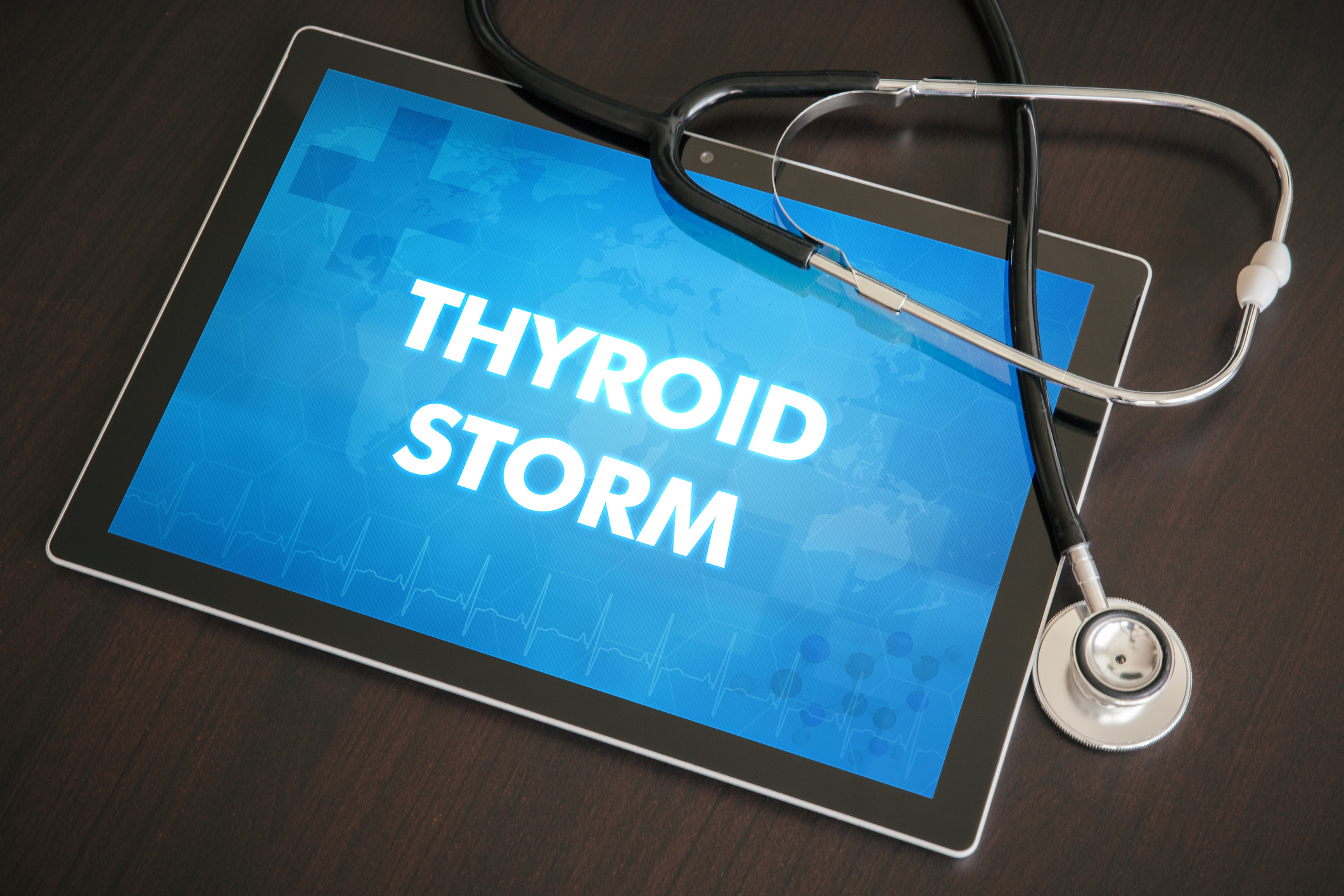What is a thyroid storm?

Also known as a thyroid or thyrotoxic crisis, a thyroid storm is a rare but life threatening condition which is associated with hyperthyroidism that is left untreated or undertreated.
Typically there’s an exaggeration of the body’s usual response seen in hyperthyroidism with patients abruptly experiencing multi system involvement. The three main symptoms include:
- An elevated body temperature – this could be up to 105F or 41C
- Palpitations
- Changes in mental status such as anxiety or confusion
But other symptoms include:
- Chest pain
- Breathing difficulties
- Fatigue
- Sweating
- Heat intolerance
- Abdominal pain
- Tremors
- Vomiting
- Diarrhoea
- Yellowing of the skin and eyes (jaundice)
- High blood pressure
In this situation you will feel very unwell indeed and will be unable to function normally so friends, family or colleagues should immediately dial 999 or take you to an A&E Department. Mortality rates are high - approaching about 15% - with patients dying from congestive heart failure.
What causes a thyroid storm?
There are several situations that can precipitate this condition including:
- Infections – especially chest infections
- Thyroid surgery or radioiodine treatment in uncontrolled hyperthyroid patients
- Pregnancy
- Cardiac emergencies
Unfortunately thyroid abnormalities also present themselves in about 16% of cancer patients being treated by immunotherapy. Endocrinologists need to be involved in managing these side effects to avoid the onset of life threatening conditions such as a thyroid storm (see my blog post on this subject)
Diagnosis
Some conditions like severe sepsis can mimic thyroid storm but the following tests will confirm its existence.
- Disturbed electrolyte levels
- Raised liver enzyme levels
- Extremely high thyroid hormone levels
- Signs of shock with a raised pulse and low blood pressure
Treatment
A positive diagnosis will require early and aggressive treatment – normally in an intensive care unit.
This will include cooling measures, IV fluids, nutritional support, electrolyte replacement and high-dose anti-thyroid drugs. Severely agitated patients may need sedation and those presenting with heart or breathing problems will need beta blockers and ventilation.
Post recovery options are concerned with the definitive treatment of the underlying cause of hyperthyroidism to prevent recurrence and include radioactive iodine or thyroidectomy.
Planning treatment and ongoing monitoring post discharge is vital.
I do hope you have found this helpful
Although every effort is made to ensure that all health advice on this website is accurate and up to date it is for information purposes and should not replace a visit to your doctor or health care professional.
As the advice is general in nature rather than specific to individuals Dr Vanderpump cannot accept any liability for actions arising from its use nor can he be held responsible for the content of any pages referenced by an external link










